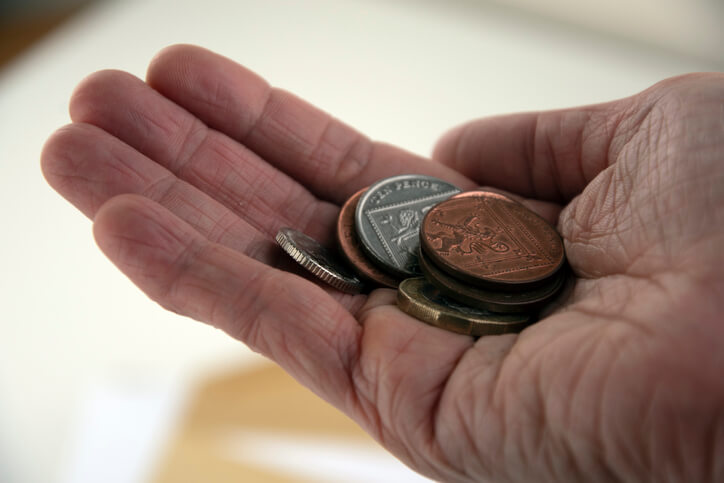Liberal conservative think tank Bright Blue has today published analysis of new polling conducted by Techne UK revealing how the UK general public assesses the performance of the current Conservative Government since 2019.
The polling analysis unearths, as the Conservative Government approaches the middle of this Parliament, how the UK public assesses its performance so far, what they think the government priorities for 2022 will be and should be, their views on the best way to help low- and middle-income people and businesses, and on how prepared the Government is for major challenges in the year ahead.
The findings suggest that a majority of both the UK public overall and 2019 Conservative voters believe that the poorest in society and people on lower incomes are more likely to have become worse off since the last general election, whereas a majority believe that those on middle or high incomes have not become worse off.
Overall, the UK public believes the Government has been performing worse than expected since the last general election across all polled key policy areas. Even 2019 Conservative voters believe the same, except on climate change and healthcare.


The public also overwhelmingly believes the Government is unprepared to deal with the major challenges of 2022, including rising prices, flooding, crime and poverty, with even 2019 Conservative voters believing the UK is unprepared to deal with all major challenges polled, except a new pandemic wave.
-
The public think that those on lower incomes have been most likely to suffer financially since the last general election. Very few people (9%) think that those on high incomes have become financially worse off since December 2019. A significant minority (38%) think that people on middle incomes have become financially worse off, and large majorities think that those on low incomes (71%) and the poorest (70%) have become financially worse off since December 2019.
-
A majority of 2019 Conservative voters think that people on low incomes and the poorest in society have become worse off financially since the last general election. 58% of 2019 Conservative voters think people on low incomes have become worse off financially since the last general election, and 62% think the same about the poorest in society, in comparison to 83% and 82% of 2019 Labour voters respectively.
-
The public is more likely to say that the Government has been worse, rather than better, than expected on all major policy areas polled. Climate change (-14%) and healthcare (-19%) receive the highest net score, while local government funding (-37%) and social care (-34%) receive the lowest net scores.
-
Both the UK public as a whole, and 2019 Conservative voters, are more likely to think that a variety of government policy areas require more spending rather than less. On a scale of 1 to 10, the public as a whole, and 2019 Conservative voters, are most likely to want more spending on healthcare, which receives the highest average score (8 and 7.8 out of 10 on respectively). Meanwhile, working-age benefits receive the lowest average score (6.9 and 6.3 out of 10 on respectively), but this is still indicative of public support for more spending. While 2019 Conservative voters are slightly less likely than the public to be supportive of more spending, they would still like to see more for all policy areas polled.
-
The UK public and the 2019 Conservative voters have a mixed view on the effectiveness of current government spending, with spending on climate change and policing viewed as most effective. On a scale of 1 to 10, climate change and policing are most likely to be judged as effective by the UK public (5.1 on average for both) and healthcare is most likely to be judged effective by 2019 Conservative voters (6.1). Both groups judge social care as the policy area where the spending has been less effective (4.6 and 5.4 on average respectively).
-
Keeping prices for everyday goods low is viewed as the best way to support people on low and middle incomes in 2022. The top three ways according to the UK public are: keeping prices for everyday goods low (25%), increasing the minimum wage (23%), and cutting taxes (19%). The same ranking is given by 2019 Conservative voters, with keeping prices for everyday goods low (32%) coming first, followed by increasing the minimum wage (23%) and cutting taxes (19%).
- A majority of 2019 Conservative voters think the Government is unprepared for all potential major challenges for 2022 polled, with the exception of a new pandemic wave. 67% of 2019 Conservative voters believe that the Government is unprepared to deal with rising energy prices, 61% believe that they are unprepared to deal with flooding, and 60% believe that they are unprepared to deal with rising crime. However, 58% of 2019 Conservative voters do believe the Government is prepared for a new pandemic wave.
Ryan Shorthouse, Chief Executive of Bright Blue, commented: “The Prime Minister is at a critical juncture in his premiership. The wider public, including those who voted for him at the 2019 general election, are generally unimpressed with the performance of this Government across nearly all major policy areas.
“Despite the promise to ‘level up’ the country – basically, provide better quality of life and opportunities for those in more deprived parts of the country – the majority of the public think those on the lowest incomes are actually worse off than when Boris was elected.
“The message is clear from the public: buck up, Boris.”












